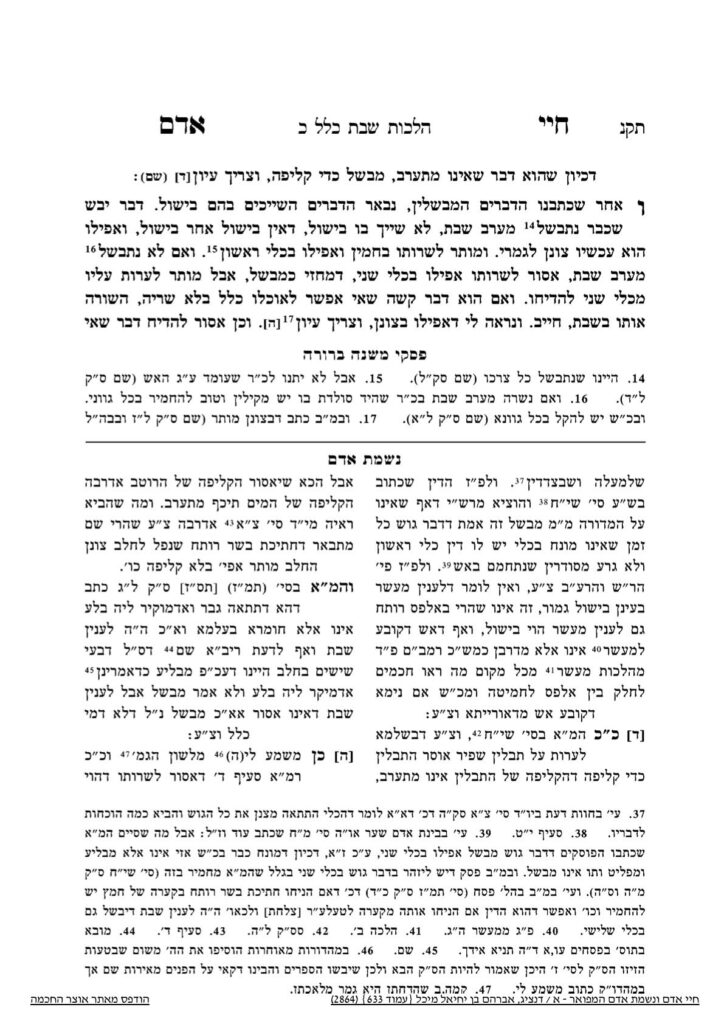We are continuing in siman 6, discussing a davar vayeish. The Chayei Adam distinguished between a davar yaveish which was previously cooked, and a davar yaveish which was not previously cooked. We learned that if the item was previously cooked, we have a concept of ain bishul achar bishul. If it had not been previously cooked, there is an issur of bishul to put the food into a kli rishon, and an issur derabanan (mechzi k’mevashel) to place it into a kli sheini.
The Chayei Adam continues, and writes that one may pour onto an uncooked food from a kli sheini, because irui kli sheini does not cook and does not look like cooking, so there is no mechzi k’mevashel.
If a food is too hard to be eaten without soaking it, and the soaking process makes it edible, it is assur to soak it.
The Chaye Adam adds that he believes it is assur even if it is soaked in cold water. In the Nishmas Adam, he explains that the issue relates to makeh bepatish. Soaking the item when it is cold is clearly not bishul, because bishul requires heat. The Chayei Adam is following the Levush who holds makeh bepatish applies to food.
The Mishnah Berurah (Biur Halacha 318:4) writes at length to prove that we are not concerned for makeh bepatish for food. One will only be chayav if heat is used, and they will be chayav due to bishul. The Biur Halacha raises the question whether yad soledes bo is required when soaking, but concludes that seeing that the vast majority of poskim do not mention bishul applying under yad soledes bo, one can assume that bishul only applies at a temperature greater than yad soledes bo. Thus, for example, if one has dry, salted meat which is not edible without soaking it, using hot water beyond yad soledes bo will be chayav for bishul. If they use cold or warm water, according to the Mishnah Berurah there will be no issur.
In a similar manner, if one pours water over a food, rather than soak it, the same halachos will apply.
If the item can become usable through the heat of a kli sheini, one will be chayav for it, because it is considered kalei habishul. The general rule that kli sheini cannot perform bishul excludes items which cook easily.
However, soaking or pouring water over something which is edible, albeit salty, to mitigate the saltiness, is not considered bishul and is not a problem.
To review, until this point, we have only discussed a davar yaveish, an item without liquid. We will continue discussing davar yaveish into siman 7.
Summary
- A davar yaveish which is fully cooked can be reheated in liquid, even in a kli rishon and even if it fully cooled down, because ain bishul achar bishul.
- A davar yaveish which is not fully cooked cannot be reheated in liquid, even in a kli sheini, due to an issur derabanan that it appears like bishul (mechzi k’mevashel).
- Irui kli sheini onto a davar yaveish is muttar.
- Soaking or rinsing a salted food to make it edible is assur if the water is yad soledes bo.
- A food which was not previously cooked which became edible through the heat of a kli sheini is assur, because it is considered kalei habishul.



